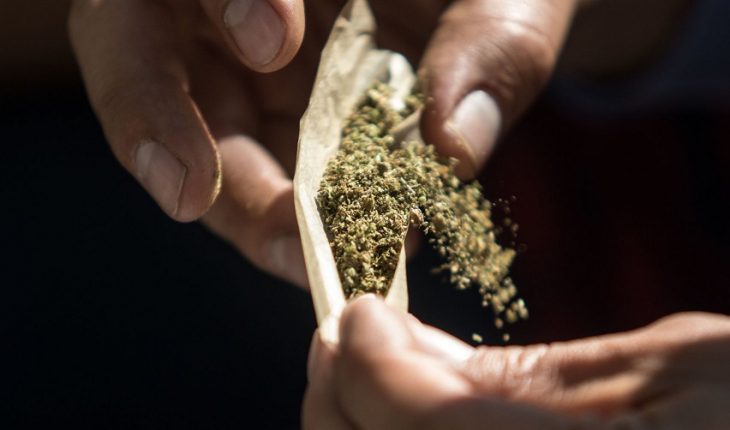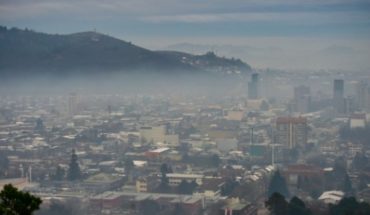When Margarita Hook discovered that a cannabis derivative reduced her son’s seizures of epilepsy, she began growing marijuana to prepare on her own the oil required by Carlos, a young man with multiple disabilities, despite the prohibitionism of this substance.
Since 2015, together with 600 other people in similar situations, he founded the collective Families and Extraordinary Challenges, who struggle to have their children recognized as the right to health, through the regulation of medicinal cannabis.
On 13 November, the United Committees on Health, Justice and Legislative Studies of the Senate decided to withdraw a cannabis regulation opinion, which had already been approved in March, after receiving strong criticism on the view that they criminalize consumers and intended to over-regulate recreational and medicinal use.
Although a new regulatory opinion will be issued, Margarita Garfias notes that people with chronic diseases or who live with disabilities and require medicinal marijuana have not been taken into account.
The mother gave as an example Article 197 of the discarded opinion proposing a three- to nine-year prison penalty and a fine to whom “without a prescription from a legally authorised doctor, administer to another person, whether by injection, inhalation or ingestion or by any other means, some narcotic referred to in Article 193”.
It questions that although there has been a regulation of medicinal cannabis since 2017, health authorities have not even issued a regulation to know the type of prescription to be prescribed and in what quantities, so access to cannabinoid remains in a black hole.
“Anyone who does not have a prescription will be criminalized. It would be a triple criminalization, in itself we are in medical exile, because all doctors close the doors to us knowing that we are using cannabis, in legal exile because we are cultivating and getting on our own and at our own risk. There wasn’t a law that criminalized us, now there is going to be,” he says.
Open door for persecution
Tania Ramirez, director of the organization’s Drug Policy Program United Mexico Against Crime, points out that there are serious contradictions, despite the decision to give a new opinion.
The biggest contradiction, he believes, is that regulation is being proposed without decriminalization, and the crime of simple possession is maintained in the Federal Penal Code, only by modifying the allowed amount, which would go from the 5 grams today, at 28 g.
“If you used to be extorted with 5 grams, you can now be extorted with 28. It is necessary to amend this criminal regime, eliminating the crime of simple possession, it is conduct that should not be considered a crime, and the parameters for pursuing the transport of small amounts would have to be changed,” ramrez argues.
At this point it also coincides Zara Snapp, drug policy researcher and co-founder of the RIA Institute, noting that a punitive approach is maintained and that it puts consumers at risk.
“We must continue to demand these changes. if lawmakers really wanted to eliminate simple possession as a crime they could, but I don’t see that they’re going to stop legislating from fear and prejudice in the coming years,” says the specialist who believes Congress is only seeking to meet the deadline given to it by the Supreme Court of Justice to issue regulation.
What about self-cultivatitive?
Both specialists also consider that there was an intention to overregulate cannabis cultivation, through the Mexican Institute for the Regulation and Control of Cannabis, who will be able to issue and control licenses and permits, with administrative sanctions, and even criminal penalties for those who fail to comply.
However, among the changes proposed by senators is that a cultivation permit is no longer required for self-consumption, although it is limited to four marijuana plants, “as well as the product of the plantation harvest per person, which must remain in the home of the person who consumes it for personal use”.
In addition, they will not be able to consume marijuana recreationally against children and adolescents, as well as people “who have not given their free and informed consent”.
‘Legal’ seeds
Lawmakers also propose that consumers register their seeds and plants with the Institute and demonstrate their legality, through a “tested and traceability” mechanism.
This means that hwill open a procedure to “identify the origin and different stages of the process of production and distribution of Cannabis, its raw material and derived substances until its final disposal and which contains the unified information of all activities for control purposes”.
This is where specialists and consumers see another great inconsistency, as no Mexican seed is legal, so they would have to import them from a regulated market, such as Canada, the Netherlands or certain U.S. entities.
“You have to register your seeds, when they don’t have psychoactive elements, and you have to prove their legality, how you can prove the lawfulness of something that’s illegal in Mexico, the only way is for amounts in a market that’s currently legal.”
Uneven market
Lawmakers issue five types of licences only for the regulation of marijuana for recreational use: a growing permit; processing, including the preparation and manufacture of products; marketing; export or import; research.
However, they propose that “crop, processing and marketing licences are mutually exclusive”, except for non-psychoactive cannabis permits.
At least 40% of crop licences are also expected to be granted to indigenous peoples and communities, peasants and marginalized communities that have been affected by the prohibitive system.
However, specialists point out that rules are needed to benefit these communities and not large companies against which they cannot compete.
“There are so many requirements to meet, that only big players, big companies will be able to enter the market and the little ones are going to stay out or because they don’t meet the requirements or because they won’t be able to compete,” Ramirez says.
It insists that it will not serve as the communities most affected to be entitled to a percentage of permits, if they are required to take unensived measures from the Tax Administration System (SAT), without the simple access to electricity and the internet.
“What it throws at you is that in the end it’s going to be a small market, of few actors, hoarded by large companies that are going to sell to a certain sector of the population, and the rest is going to stay on the margins, still in illegality and, moreover, still being criminalized,” he says.
Zara Snapp also considers that the requirements for obtaining a permit should not run a barrier for indigenous communities and peoples affected by illegal marijuana trafficking.
“Our job is going to be for the market to go with those communities first, that this is the most early reality and not one where transnationals take out a license to be part of the market,” he explains.
The requirements, he believes, will be “barriers to entry for many communities because of lack of access to electricity, much less internet. We need to see how we adjust those requirements.”
If they don’t want to see us, they’re going to smell us.
Leopoldo Rivera, coordinator of the Mexican Cannabis Movement, says that no opinion will be supported that will continue to criminalize marijuana consumers, so they plan to protest this November 17 in the offices of senators from each state, to demand changes in the next regulation.
“It’s a waste, they’re not respecting the rights of users. There seems to be a slogan to ignore us, senators have not come down to check that plants do nothing,” the activist says, referring to the seedling and sowing of cannabis in front of the Senate since last February.
“If they don’t want to see us, they’re going to smell us,” warns Rivera, who believes that no human rights violating opinion should be approved in regulation.
How to regulate marijuana with social justice?
For Mexico’s Specialist Against Crime, it is essential to eliminate the crime of simple possession, if regulation is sought that pays for peace and justice.
It also considers that there should be a reclassification of tetrahydrocannabinol (THC), the main active component of marijuana, which is found in small amounts, mainly in the flowers and leaves of the plant.
In addition, it notes that the process should accompany financial education or financing schemes, mainly for growers, as well as eliminate “excessive traceability rules, which prevent the incorporation of affected communities, and eliminate seed registration”.
Meanwhile, researcher Zara Snapp glimpses groups and communities challenging parts of the regulation, if approved with violating human rights elements.
“It is important that we move forward in a law that respects the free right of personality.”
What we do at Animal Polithic requires professional journalists, teamwork, dialogue with readers and something very important: independence. You can help us keep going. Be part of the team.
Subscribe to Animal Politics, receive benefits and support free journalism.#YoSoyAnimal
translated from Spanish: Legal marijuana? Failures and obstacles along the way for regulation
November 16, 2020 |





